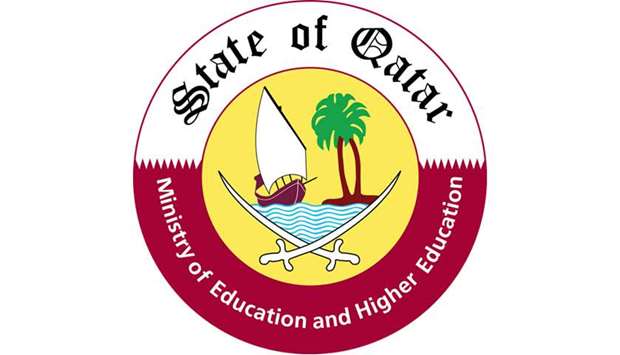The coronavirus pandemic will not affect the start of the new school year in Qatar, a senior official said on Thursday.
HE the Undersecretary of the Ministry of Education and Higher Education, Dr Ibrahim bin Salih al-Nuaimi, said the crisis has not affected the progress of the educational process in the country, adding that the new school year will start on time according to the announced school calendar.
Al-Nuaimi said distance learning is proceeding well and there is great response for the process from students and their guardians.
"We have sensed this through the feedback on daily and weekly assignments and assessments," he told Qatar News Agency.
He said the Ministry's preparations for secondary school exams for students of day school and adult education for the 2019-2020 academic year are proceeding well.
The two-week long exams will start on June 1, the official added.
Al-Nuaimi said 11,476 students will write the secondary certificate exams this year, spread over 149 centres.
Al-Nuaimi said the Ministry of Education and Higher Education works in co-ordination with the Ministry of Public Health and other entities to ensure that the exams are conducted in safe conditions, adding that the Student Evaluation Department carried out a number of procedures to hold the exams in a safe environment.
He explained that each classroom will have a maximum of eight students, while large gym halls will have a maximum of 40 students, with a distance of up to 4m between students.
Furthermore, masks, gloves, disinfection kits and temperature checking devices will be provided in all exam rooms, as well as in the evaluation and control centres.
Al-Nuaimi said formal classes that involves direct interaction between teachers and students is undoubtedly the best way to achieve learning goals, as well as to help in social and psychological development.
However, due to the circumstances created by the pandemic, the Ministry found distance education was the appropriate way to complete the academic year.
He said the Ministry has made great strides in establishing e-learning over the past years, through the 'LMS' system adopted in all schools in the country.
"The Ministry adopted the MS Teams system as a major platform for distance learning, and this was accompanied by ensuring schools' readiness and teachers' familiarity with the required skills.
"More than 1,600 tablets and more than 4,800 home broadband devices were distributed to provide Internet access to students who do not have such facilities, in addition to broadcasting e-lessons on YouTube and TV distance learning channels," he said.
Al-Nuaimi said the number of YouTube educational channels reached 19, with a total of 84,000 subscribers, pointing out that these channels contained all the illustrated lessons, divided according to the stages and subjects, and also contained 30 awareness and explanatory videos of the mechanisms and system of distance learning for teachers, students and the guardians.
There are two TV channels dedicated for the process, he added.
Al-Nuaimi said the ministry monitored indicators related to lessons posted on YouTube channels for KG classes to the 12th grade and adult education.
Referring to distance education in private schools, he said the process was going well, and the application rate has reached 100%.
He pointed to the multiplicity of systems used in private schools as a result of different experiences in the e-learning system, and the different policies adopted according to the special systems and curricula in each school.
Private schools have varied in the depth of application, he said noting that the vast majority of them apply distance education interactively between students and teachers, with integrated lessons, at a rate of approximately 85% of those schools, while the rest of the private schools are implementing e-learning well, through the use of their educational platforms, posting video lessons and continuous follow-up by teachers.

